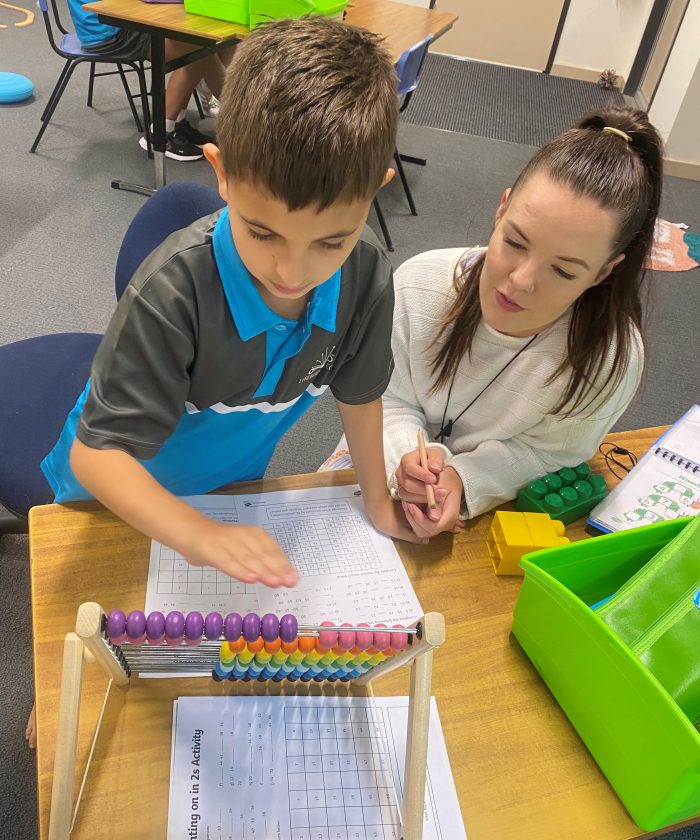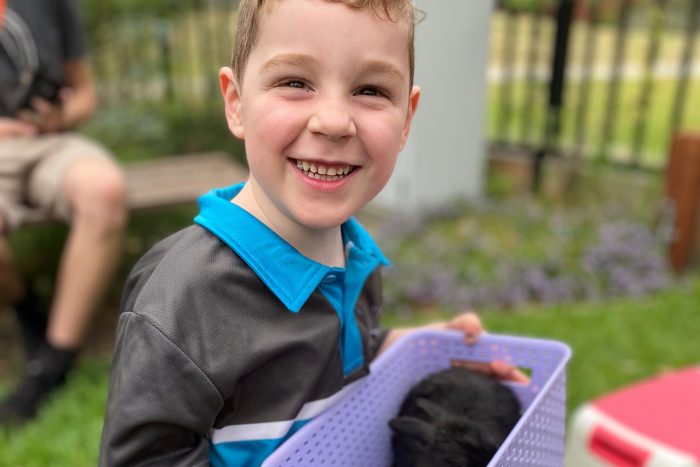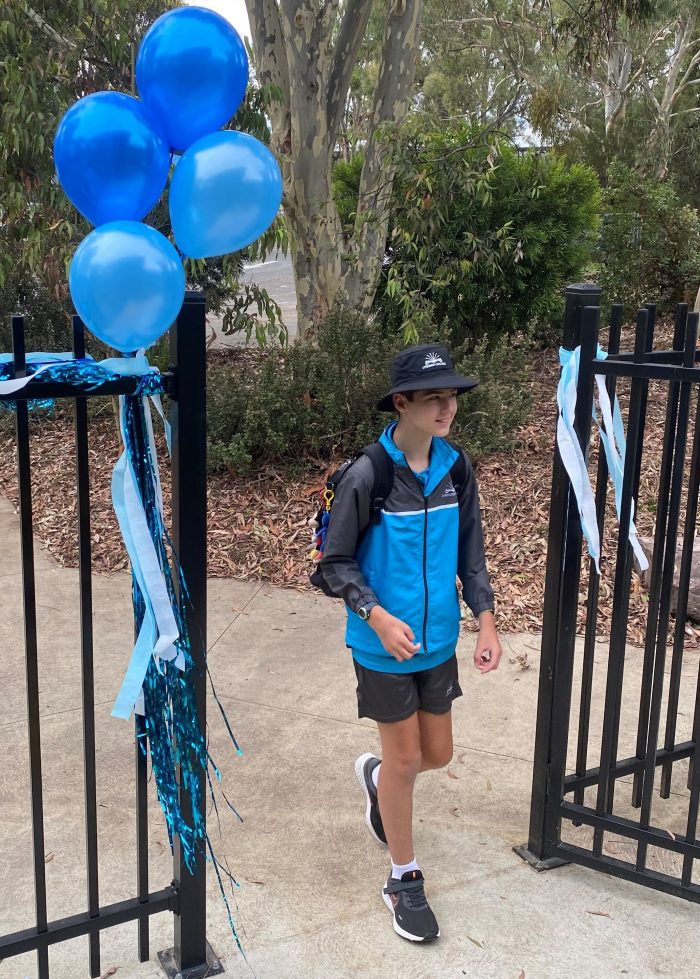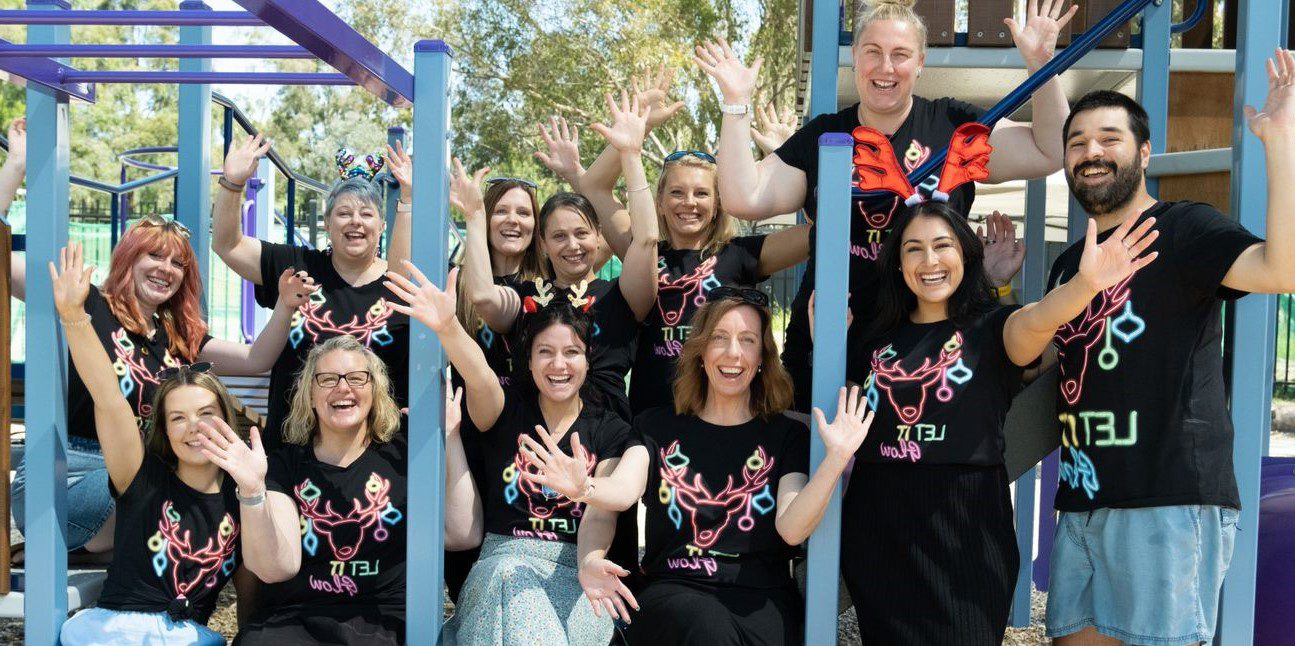Lyrebird College provides an inclusive learning environment for students aged 5 – 18. The school provides a highly individualised curriculum based on assessment using the Victorian Curriculum F-10 and Ability Based Learning and Education Support (ABLES).
Our curriculum embraces all areas of academic learning at a level that meets each student’s educational needs. We use scientifically proven behaviour interventions to achieve clearly defined goals for each student, ensuring progression, continuity and coherence in learning.
The curriculum is delivered by highly trained staff who receive ongoing training and professional development in autism-specific methodologies.

What’s In a Name?
The name “Lyrebird College” was chosen for our school not only because the Lyrebird is native to the Yarra Ranges but because a number of the traits the Lyrebird exhibits are mirrored in many people with an Autism Spectrum Disorder.
Lyrebirds are natural mimics which is one of the first skills all children are taught, and mimicry is a vital skill for all children with an ASD to learn. This can be in the form of echolalia or the imitating of movie scripts and turning them into their own conversations. A Lyrebird will create a cacophony of complex sounds from those around them such as a laugh from a kookaburra, a song from a magpie or even a chainsaw. It then fashions these sounds into its own unique song. This uniqueness is also aligned with people with an ASD.
Lyrebirds are known for being socially shy and difficult to see in the wild. They keep to themselves and just like some people with an ASD, they prefer their own space.
Lyrebirds are beautiful.
The Model/Approach
Lyrebird College adopts a cohort model to ensure the greatest possible educational outcome for our students.
The Cohort Model sees students grouped together based on complementary needs to ensure the teaching approach addresses the needs of all students and prevents likely disruptive side-effects that may detract from the overall educative experience (e.g. using toys that may elicit an uncomfortable sensory experience).
Curriculum and Teaching
The Lyrebird College curriculum, based on the Victorian Curriculum, was developed using a variety of research-based developmentally sequenced, curriculum and assessment tools. As outlined in the report Early Intervention for Children with Autism Spectrum Disorders: ‘Guidelines for Good Practice’, the curriculum encompasses a broad range of interventions designed to support the needs of our students.
The Lyrebird College curriculum is designed to develop skills to enable all students to become life-long learners and active and informed members of society. These skills are broken down into the following categories, and are part of everything Lyrebird College does:
- Communication
- Literacy and numeracy
- Social and play skills
- Emotional skills
- Daily living skills
- Group skills and classroom participation
Lyrebird College will create an individualised learning plan for each student who attends the school. The programs recognise the strengths and areas of improvement for each student and targets individual student needs and current learning styles. Student progress is monitored and reviewed regularly and learning plans are adapted and updated as the student progresses. To develop this program a variety of research based curriculums are utilised and drawn upon including:
Applied Behaviour Analysis (ABA)
Principles of ABA are incorporated within the teaching processes, individual learning and behavioural goals and strategies to support each and every student reach their full potential.
ABA is the process of systematically applying interventions based on the principles of learning theory to improve socially significant behaviours to a meaningful degree. Specific socially significant behaviours may include academics, communication, social skills and adaptive living skills.
The target behaviour is broken down into small, manageable steps that the student is then taught to apply together as a meaningful, independent skill. The focus is on success and positive reinforcement, and thoughtful goal and strategy selection based on a student’s individual abilities and needs, and data based decision making.
Lyrebird College focuses on the generalisation and maintenance of skills by incorporating individualised programming and strategies across one to one tuition and in small group settings.
Assessment of Functional Life Skills (AFLS)
The Assessment of Functional Life Skills (AFLS) is a criterion referenced skills assessment tool to track student progress and guide our school programs and individualised curriculum. We can make informed decisions regarding the teaching of essential skills which allows our students to achieve their most independent outcomes.
The AFLS includes six protocols which allow us to assess different areas of essential skills:
- Basic living skills
- Home skills
- Community participation
- School skills
- Vocational skills
- Independent living skills
The Classes
Lyrebird College has capacity to cater for 20 students.
Each student will receive 1:1 learning time as needed to enhance their learning and to assist in achieving their goals.
Students generally will not be allocated to a class based on their age, but rather by their abilities and their compatibility with the intake group of their peers under the cohort model. The primary class grouping at Lyrebird College will be upper primary and lower primary.
Secondary classes will be added as the students in upper primary graduate to the next level. This will allow Lyrebird College time to develop a more comprehensive understanding of its students and their individual needs before they enter the
Staff
Lyrebird College is staffed by professional, highly skilled and committed educators who work in partnership with parents to ensure the greatest education outcome for our students.
Each class of 6-7 students will be supported by a class teacher and 2-3 educators trained in the delivery of ABA.
The Students

To be eligible for enrolment students at Lyrebird College must meet the eligibility criteria:
- Diagnosis of Autism Spectrum Disorder
- Significant deficits in adaptive behaviour
- Significant deficits in language skills
- A cognitive assessment showing an IQ score around 70 or below
Further information about documentation required for eligibility and selection criteria is described in the Application for Enrolment form. Please complete an Expression of Interest form for additional information in the Parents and Families section.
Documentation collected during the application process is used by the College Principal to assess eligibility, as well as to identify the reasonable adjustments necessary to assist the student’s participation and the applicant’s suitability for placement into a class based on our cohort model. All eligible applicants will be placed on the Prospective Enrolment List.
Lyrebird College promotes collaborative learning partnerships with families by strongly encouraging the lessons learned to continue outside the school environment. All prospective students and families will be required to attend an interview with the Principal and intake staff to discuss student and family needs in greater detail.
Fees
The subsidised annual tuition fees for students per annum in 2024 have been set by the College Board at:
Primary Student $12,950
Secondary Student $16,000
Fees are payable quarterly.
These fees are inclusive of all books and stationery needs, art & craft supplies and food technology supplies.
5% discount for fees paid in full by the start of term 1.
Excursion Levy $125.00


